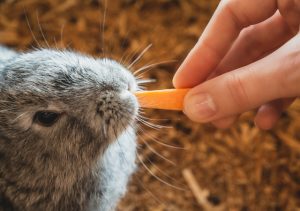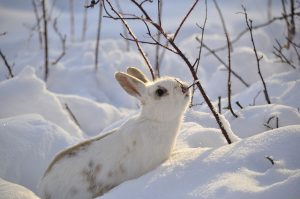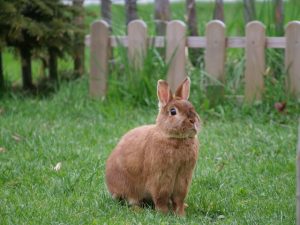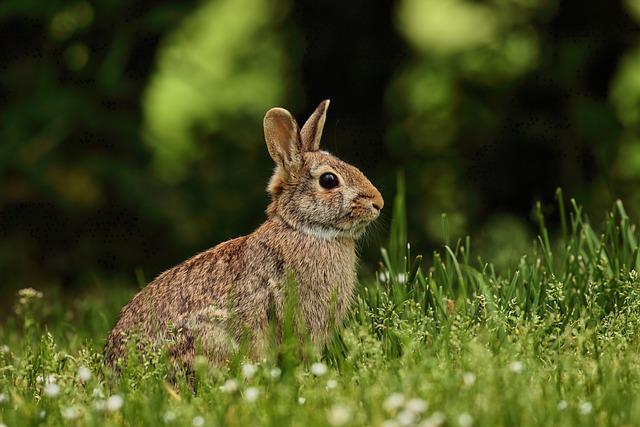
We all know what a healthy diet is for domesticated rabbits. Yet, sometimes, as you gaze out your window, you see other rabbits, of the wild type, and even wild baby rabbits, eating the grass in your yard. Sure, the grass is supposedly okay, however, is it fine for the baby?
Contents
The rabbit has a somewhat sensitive digestive system. They need certain foods to help their systems work in the most optimum manner.
The grass may be okay in small quantities, according to what we have already learned.
Is it enough fibre to keep their teeth healthy and their systems moving forward the way they were intended to?
A Rabbit’s Five Needs
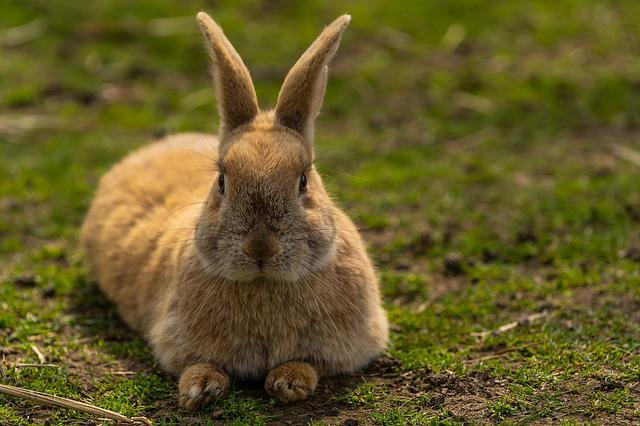
There really is not much that a rabbit needs for a good life. The basic needs are easily met and if you are spending time with your rabbit, then all aspects are being met. What a rabbit does need and craves very much are some natural aspects of life. Natural behaviours, such as running, jumping, foraging, digging and getting up on their back legs.
Social needs are met by having another paired or bonded rabbit. Companionship is just as important as food to a rabbit. When considering a second rabbit, be sure they have both been neutered. Not doing so will definitely cause issues. Being the social creatures they are, being alone is unhealthy and can lead to illness, depression or loneliness.
A natural diet means that you should not just buy prepackaged foods for your rabbit to eat. They need Timothy hay, fresh greens, nutrient-rich pellets and a small number of acceptable vegetables and fruits.
Domesticated Rabbits need to feel secure. The living area should be large enough so they can easily move around. There should be, in essence, separate rooms, and most importantly, if you can connect to an outdoor animal run that is covered and safe from predators, your rabbits will be delighted to run and play as often as possible.
Maintaining their health is important also. Both rabbits should be spayed or neutered and any and all vaccines should be up to date.
Sociable
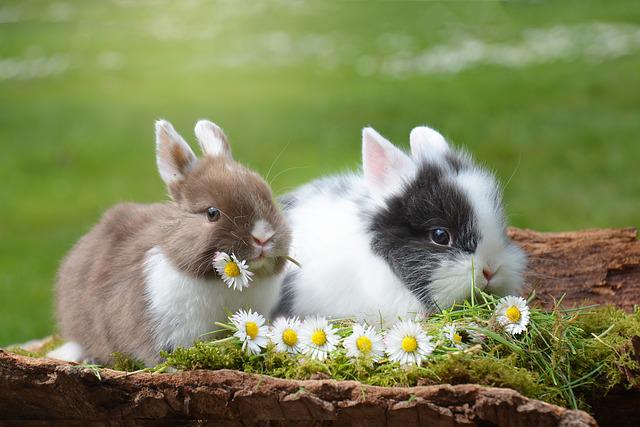
Rabbits are truly sociable animals. They love to have at least one companion. Honestly, it is best to keep rabbits in a set. This will keep loneliness, depression and stress at bay. Wild rabbits do live in colonies, however, there is still in-fighting over the hierarchy at times. Groups are acceptable as long as they are compatible.
Activity Levels
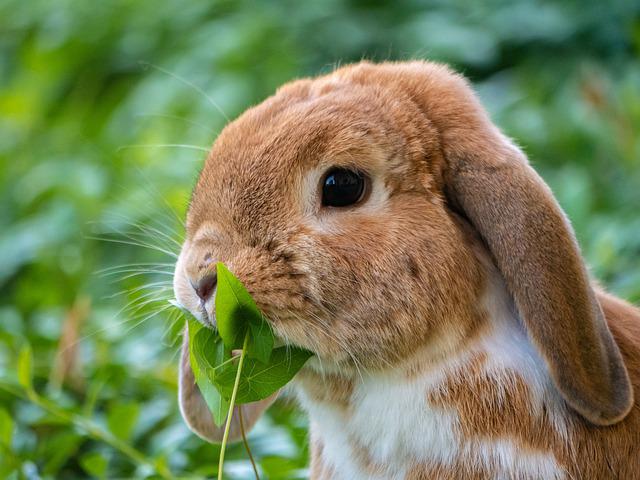
A rabbit can be extremely active. There is more to keeping your rabbit active than just a large enough cage. Ideally, having the run of a room in your home, or an attached exercise yard accessible from the outdoor cage would be perfect. Obviously, you want the exercise yard to be a safe place for your rabbit. Rabbits are considered prey in the wild.
The exercise yard should have a cover of some type that will eliminate the possibility of a predator getting in. The yard itself should have an area where your baby bunnies can run to hide if they sense danger. For most this could be a pile of straw in a corner that they can burrow into, an area where they can burrow into the dirt or just a place that is located in an area that nothing else can reach into.
Natural Diet
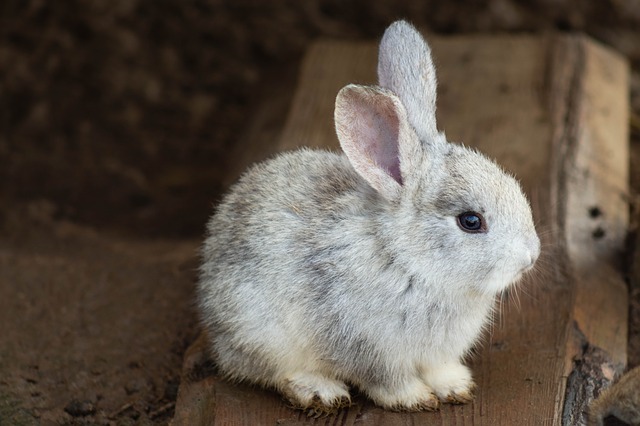
The grass is an excellent addition, but should not be the only form of hay or grass. Although your baby rabbit could survive off just hay and water, it is always best to add in some fresh grass, nutritious pellets and a combination of fruit and vegetables that are acceptable for a rabbit diet.
Veterinarian
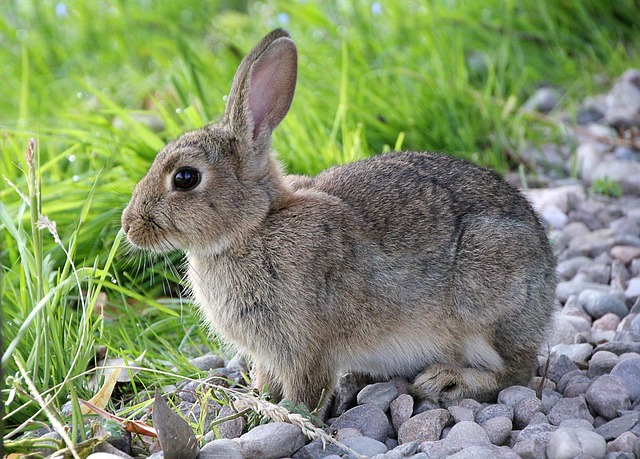
Just as with their human counterpart, your baby bunnies need a regular Doctor. You should have a veterinarian that knows about rabbits. What the health needs are and what to watch for in a bunny.
Routine physical examinations are part of a healthy routine. They also need vaccines and other medications at times.
In the wild, a rabbit may not survive for a long period of time. Domesticated rabbits, however, can live for ten years or more when they are properly cared for.
Playtime
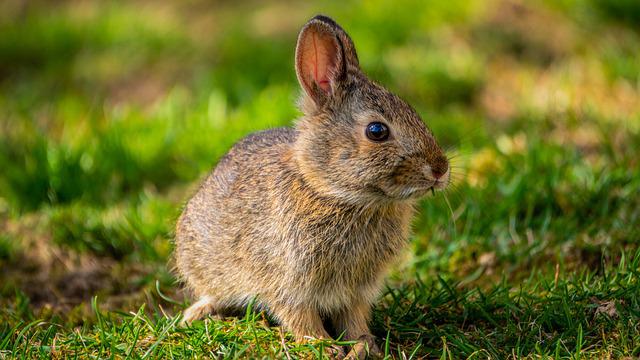
Rabbits do love to play, especially baby bunnies. The area that you have chosen for your bunny must be a safe place for him or her to play. They love to have enough room to run and hop. They love to burrow and dig. All these are things that your rabbit does as a daily activity.
Types of Grass for Rabbits
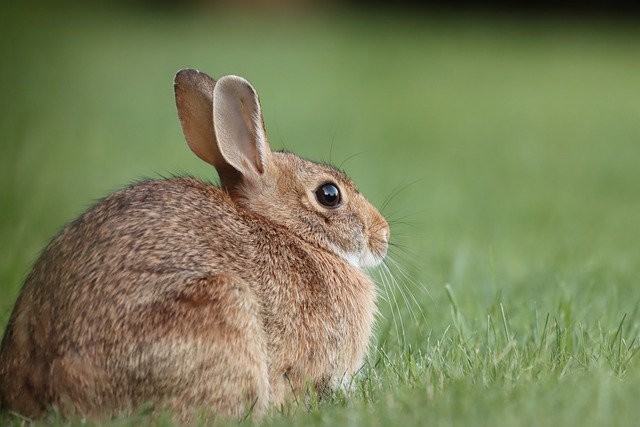
Baby rabbits need exercise and the yard is the perfect place to get that exercise in. However, since there is grass in the yard, is it safe for your baby bunny to eat it? The type of grass is not as important as whether the grass has been chemically sprayed or not.
Like most animals, the baby rabbit is likely going to be nibbling on the grass in the vicinity that it is in when it is playing outdoors.
Luckily, the grass that grows in your yard is actually safe for a baby bunny. As long as there have been no chemical sprays used on the grass. The grass is also home to many insects, this is one of the main reasons families will spray the chemicals on the grass, to eliminate the insects. These insects can also be harmful to your baby rabbit.
Rabbits do not like to eat bugs, nor do they like to kill bugs, this can cause an immense amount of stress on your rabbit as they are in the yard eating grass.
The only way to prevent issues from fresh outdoor grass is to be sure that there is nothing including bugs that could harm your baby bunny. Since it is virtually impossible to prevent bugs in the grass, the best choice is to not leave the baby bunny in the grass for too long eating. If you could ensure that there are no insects, without the use of chemicals being used, then your baby rabbit would be fine. Since that task is almost impossible, it is best to not let the rabbit feed on its own from the yard.
What you can do is use scissors, cut a bunch of grass from the yard, then place it into a colander or wire mesh strainer and rinse the grass off to ensure there are no bugs. This should make it safe for the baby bunny to eat, and give you peace of mind. Allow the grass to dry completely before feeding it to your baby bunny.
There is much more to feeding the baby bunny grass than what you can imagine. Follow the guidelines and your baby bunny should be okay with eating fresh grass.
- Ensure that the grass has not been sprayed with any type of chemical to rid the grass of insects.
- Start off with fresh grass slowly. Do not try to feed huge amounts of fresh grass to a baby bunny.
- Try to be sure that the grass you offer the baby bunny is dry grass, not wet grass.
- The best grass would be the medium-sized grass and those on the thinner side. These include Bermuda Grass, Kentucky grass, and Bent grass. These types of grasses are easier for baby bunnies to digest.
- Cut the grasses in lower amounts, and do not give the baby rabbit grass that had been cut a lengthy period of time before.
- Do not mix hay and grass.
Too Much of a Good Thing
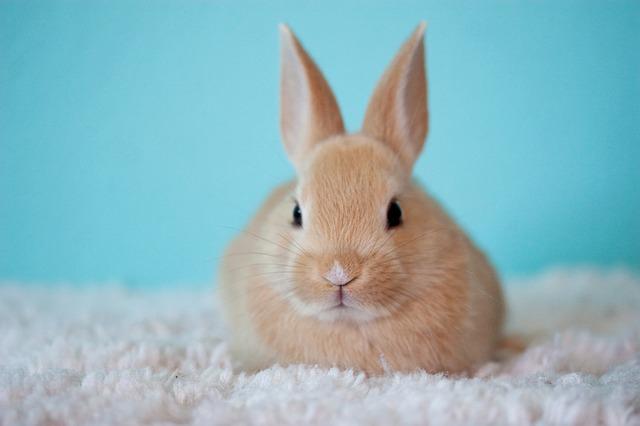
Even if you follow the suggestions to feed your baby bunny fresh grass, there are still problems that you need to watch out for. One thing to keep in mind about a rabbit is that they will try to finish every bit of food given to them. Just like all things in life, too much of a good thing can be a bad thing.
Eating too much grass can cause different issues for baby bunnies. Watch for these signs:
- Bloating
- Stomach Ache
- Digestive Problems
- Diarrhoea
- Urine Problems
The grass is just a portion of what a great diet is for your baby bunnies and the grown adult rabbits. Once the rabbit has fully grown up, the instincts will take over the rabbit and they will avoid eating what is not good for them.
Baby bunnies however need guidance, and as the owner, you need to provide the guidance. Know the amounts that are good for your baby bunnies, be sure to not give them chemically sprayed grasses, and do not allow them to overeat grass.
As the baby rabbits begin to grow, they will begin to eat what the mother eats, until then, follow the recommendations for grass and be safe for the health of your baby bunnies.
Ideally, it would be great to be able to allow the yard to grow naturally and then add in some herbs, some wildflowers, of course, all those things that are safe for a rabbit to eat.
When you can do this type of growth in your yard, the bunnies can forage for their diet and eat only those items that are acceptable for their diets, all planted by you, so you know of no chemical spray used.


